#Mark Millar
Explore tagged Tumblr posts
Text

1K notes
·
View notes
Text
Mark Millar has written two (2) comics predicated on noticing that, due to editorial circumstances resulting in a massively lopsided ratio of supervillains to superheroes, the superheroes would be completely fucked if the Supervillains ever collectively noticed the disparity and avoided backstabbing each other long enough to take advantage of it. Neither of those works are particularly good, per se. But the long shadow of the good idea that they're based on is something I think about a lot
#mark millar#Old Man Logan is trashy fun#Wanted is at best occasionally strangely compelling in the worldview it's advancing#thoughts#meta
90 notes
·
View notes
Text

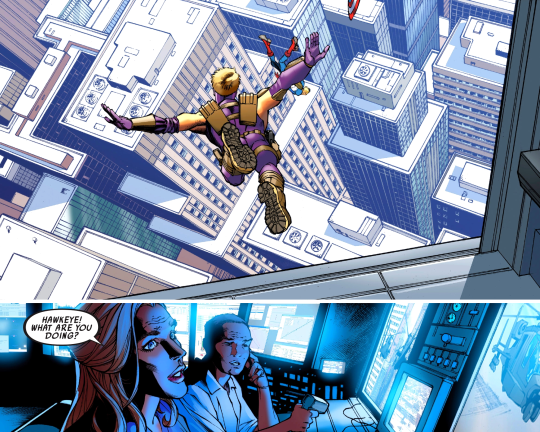
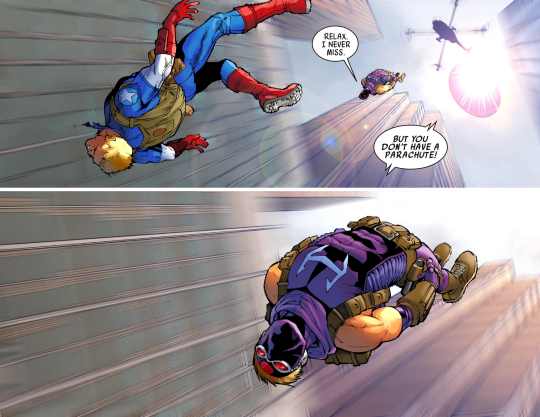

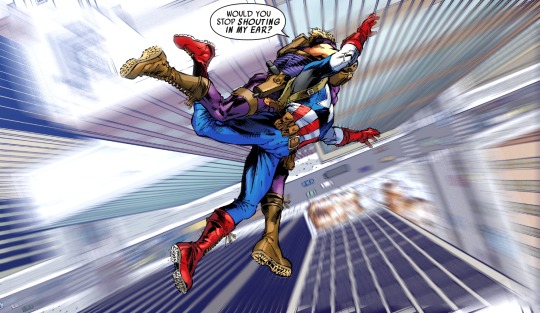
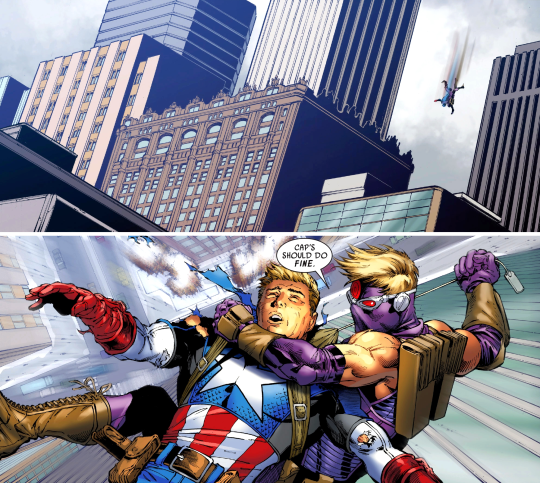


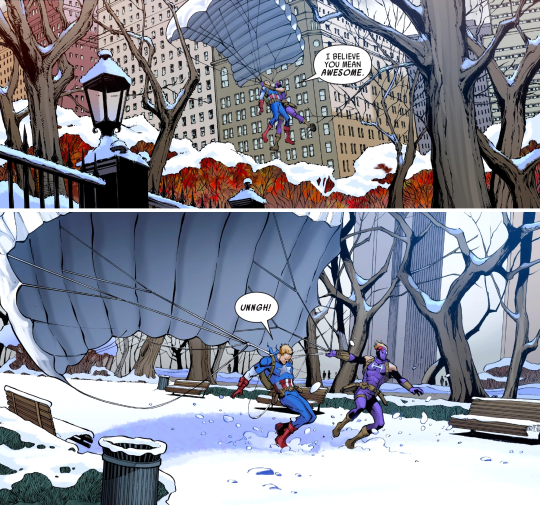

HAWKEYE - "Relax. I never miss."
Ultimate Avengers (2009) #1 by Mark Millar, Carlos Pacheco & Danny Miki
#Hawkeye#Clint Barton#Ultimate Hawkeye#Captain America#Steve Rogers#Red Skull#Ultimate Universe#Ultimate Avengers#Mark Millar#Carlos Pacheco#Danny Miki#Marvel#Comics
255 notes
·
View notes
Text




2005's Marvel Knights: Spider-Man Vol.1 #12 (turning 20 today, feel old yet ?) cover by artists/couple Terry and Rachel Dodson.
#Spider-Man#Green Goblin#Marvel Knights: Spider-Man#spider man comics#art#spider man#comics#norman osborn#peter parker#mark millar#terry dodson#rachel dodson#00s comics#2000s comics#spider man versus green goblin#the last stand#spider man vs green goblin#comic book cover art#Peter Parker vs Norman Osborn#20th anniversary#20 years ago#comic covers#marvel comics#marvel#spidey#comic books#marvel knights#20 years old#20 years later#The Dodsons
43 notes
·
View notes
Text
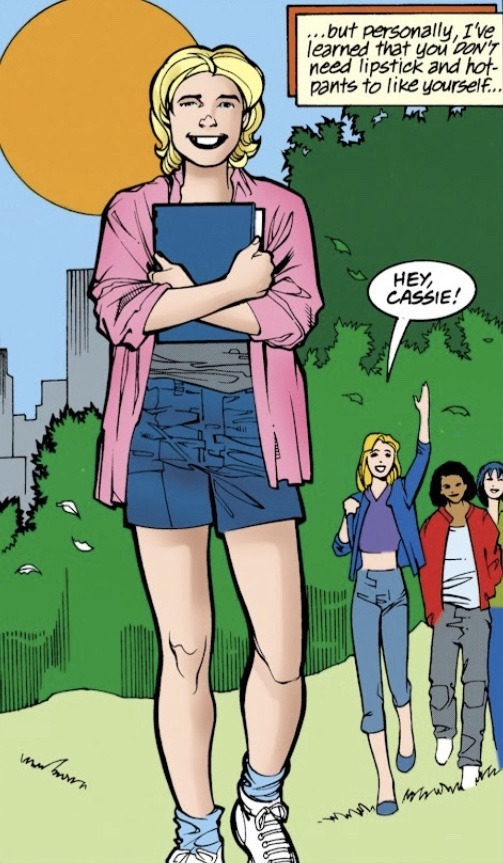
#cassie sandsmark#wonder girl#daily cassie sandsmark#georges jeanty#mark millar#rick taylor#wonder woman vol. 2#my deepest longest and most dramatic sigh ever
151 notes
·
View notes
Text

Tony Stark & Emma Frost Civil War (2006) #2
#marvel#avengers#marveledit#comicedit#tonystarkedit#ironmanedit#tony stark#iron man#emma frost#tonnyemma#civil war (2006)#616#mark millar#steve mcniven#marvel comics#avengerscompoundedit
38 notes
·
View notes
Text

Two Scottish comic book writers/creators Grant Morrison and Mark Millar appeared in a comic book where The Simpsons visited Scotland and the two fight over whose X-Men title is selling the most.
281 notes
·
View notes
Text



Old Man Logan was the PERFECT INSPIRATION for the 2017 film! 🎥
#fun fact#fun facts#trivia#comics#marvel#comic books#marvel comics#marvel comic books#marvel characters#marvel superheroes#xmen#x men#x men comics#x men movies#x men wolverine#wolverine#hugh jackman#logan#logan movie#logan 2017#old man logan#mark millar#spaghetti western#unforgiven#clint eastwood#inspiration#marvel universe#logan howlett#logan wolverine
32 notes
·
View notes
Text

This wasnt made up this is how they always interact
Simpsons Comics #88
20 notes
·
View notes
Text

Action #753
23 notes
·
View notes
Note
If youre still doing it, heroify Lex Luthor
The fish-in-a-barrel answer is Tony Stark, but the intuitive answer, not to mention the version I've actually seen executed at least twice- is that you ask the question- what if he's right, about Superman being bad news?- and then you go from there.
I'm actually going to take this opportunity to talk up one of the few Mark Millar comics that I recommend wholeheartedly, Jupiter's Circle, which is interesting in that the setting's Luthor analogue, Jack Hobbes, is essentially playing Luthor's cope-and-seethe angle completely straight, as a thing which he legitimately believes and which he's ultimately basically correct to believe in spite of most superheroes being at least decent people.


What was interesting to me about this portrayal is that Hobbes eventually decides that he miscalculated, that he can do more good by working with the Utopian as his friend and confidant than by fighting him every step of the way. It's a straight-up Lex Luthor redemption story. But the thing is that the setting of the comic as a whole is predicated on the idea that he was actually completely correct- although he doesn't live to see it, although he dies thinking he was initially misguided, the long-term trajectory of the setting is that superheroes eat the world, politics and activism alike subordinated to their petty grievances and soap opera idiocy. A major plot point of the second volume of this was that Not!Batman's turn towards militant leftism gets completely written off by his 1960s contemporaries because they're so used to reading his behavior through the lens of whiny rich-kid superhero interpersonal drama that they just can't parse it correctly. The comic advances that there's a self-centeredness and egotism inherent to the superhero that makes them suck ass at effecting long term positive change, but they also aren't going away, and they can blow up skyscrapers. At the point where I stopped reading, the setting was implied to be caught in a kind of boom-and-bust doom cycle where the superheroes gradually create a singular hegemony, then collapse into hyperdestructive infighting over what to do with that hegemony once they run out of conventional supervillains to fight- the aftermath of which clears the board for a new wave of the classic silver age cops-and-robbers game, which then gradually hegemonizes, ad infinitum. (This is a line of thinking that crops up in a lot of Millar's capepunk work once you know what to look for- Wanted, Old Man Logan, and to some extent The Ultimates all being examples.)
Another example of Heroic Lex Luthor, which I've written about before, is the comic Edison Rex, a comic whose pitchline is that the setting's Luthor analogue, the titular Edison Rex, turns out to have been completely correct that the setting's Superman analogue was an unwitting sleeper agent for an alien invasion, and steps up to replace him as Earth's foremost protector after finally neutralizing him- but since all he really knows how to be is a supervillain, his management style and problem-solving methodology from his time as an ends-justify-the-means anti-superman crusader translate to the new job with extremely mixed results. The comic ran 18 issues and remains unfinished, but it was pretty good.
#jupiter's circle#jupiter's legacy#thoughts#meta#asks#ask#ask game#mark millar#lex luthor#by the time I stopped reading i got the sense jupiter was about to go somewhat off the rails#so I don't vouch for anything aside from the first two volumes of circle and legacy#effortpost
86 notes
·
View notes
Text
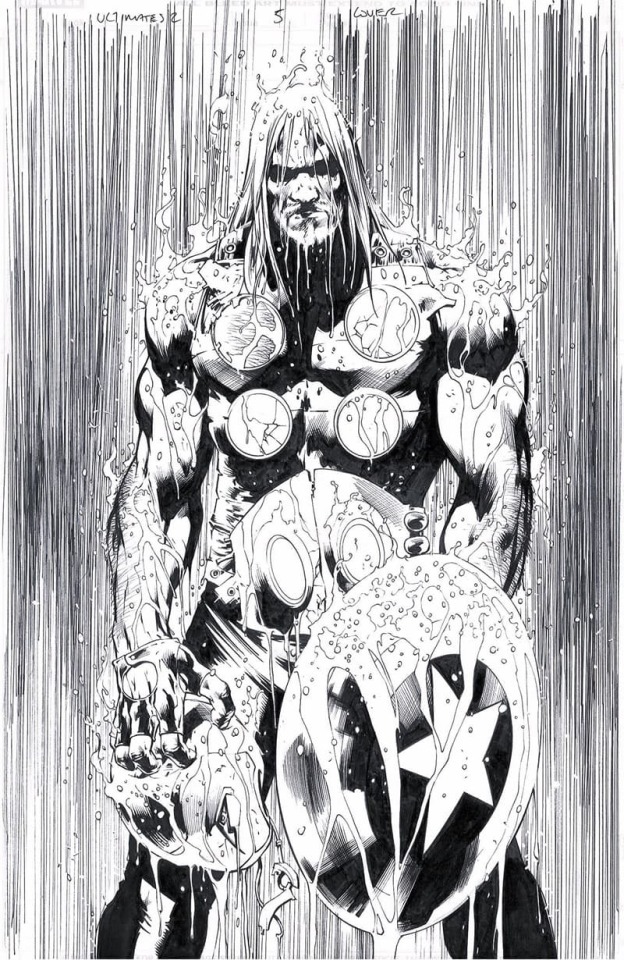
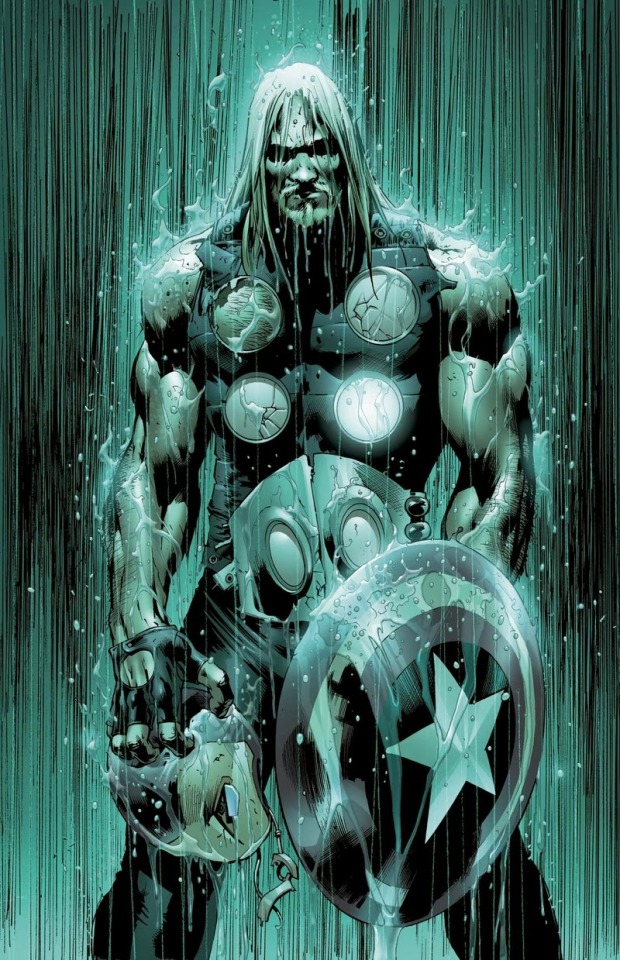
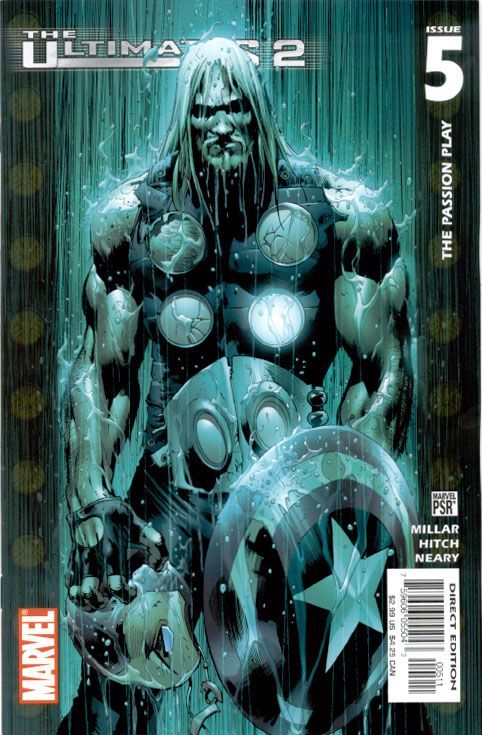
2005's Ultimates 2 Vol.1 #5 cover by Bryan Hitch, Paul Neary and Laura Martin.
#thor#ultimate thor#ultimates#badass#mark millar#bryan hitch#paul neary#RIP#laura martin#marvel#2000s#2005#ultimate universe#the ultimates#captain america shield#iron man helmet#heavy rain#worthy#unworthy#mjolnir#god of thunder#asgard#earth#striking#cool comic art#comics#marvel comics#2000s aesthetic#mood#dark atmosphere
101 notes
·
View notes
Photo










Venom
#comic#comics#comic book#comic books#art#illustration#artists on tumblr#Mark Millar#Terry Dodson#Rachel Dodson#Eddie Brock#Venom#Mike Deodato Jr#Mike Deodato Jr.#Thunderbolts#Warren Ellis#Mac Gargan#Ben Reilly#Ultimate Venom#Spider-man#Ultimate Spider-man#Sara Pichelli#John Romita Jr#Joe Quesada#May Parker#Clayton Crain#Peter Parker#Tony Moore#horror#alien
48 notes
·
View notes
Text

What a perfect way to ending 2024 by ordered Civil War by Mark Millar and Steve McNiven.
BEST👏2000S👏MARVEL👏CROSSOVER👏EVENT👏EVER👏
Marvel's Civil War was my jam.
#Civil War#Marvel Civil War#Mark Millar#Steve McNiven#Marvel#Marvel Comics#Marvel Universe#minepost#comic books#comics#2024
20 notes
·
View notes
Text
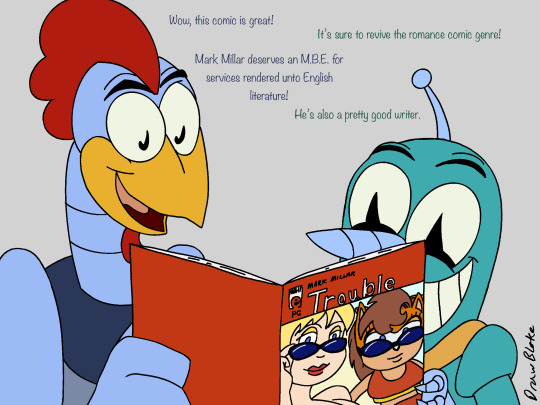
Scratch and Grounder getting into Trouble... the Mark Millar romance comic classic that broke new ground and a few sane minds.
For /co/
#AoStH#Adventures of Sonic the Hedgehog#Fanart#Scratch and Grounder#Scratch#Grounder#Sonic the Hedgehog#Mark Millar#Trouble#co request#Madonna (Sonic)#Tiara Boobowski
81 notes
·
View notes
Text

Nemesis: Rogues' Gallery #5
13 notes
·
View notes